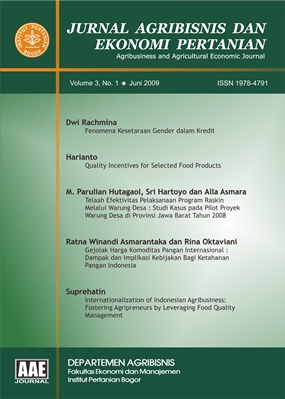TELAAH EFEKTIVITAS PELAKSANAAN PROGRAM RASKIN MELALUI WARUNG DESA : STUDI KASUS PADA PILOT PROYEK WARUNG DESA DI PROVINSI JAWA BARAT TAHUN 2008
Abstract
Raskin program is the government’s attempt to relax economic burden which poor families face by giving them a certain amount of subsidized-price rice (raskin). In effort to improve the program’s performance, recently the government introduced new concept for the distribution of raskin. By this new concept, the distribution of raskin would be through rural kiosks, not through village-level government network as used to be. Before institutionalized as an alternative for the conventional one, the new concept was tested in some pilot projects located in several provinces, including in West Java Province. Based on the field work in this province, this study concluded that the new concept could improve the program’s performances, especially with regard to quantity and price correctness. It was also found that villagers and local government apparatuses were in support for its implementation. However, it is necessary for the government to monitor and evaluate its implementation on a regular base and to develop a system of governance at village level to assure its good performance. It is also necessary to give a more attractive amount of fee for the owners of kiosk to ensure their commitment to support the program.
Published
2009-06-01
Section
Articles

